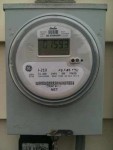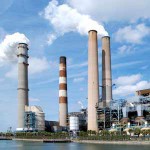What is HB 2004?
HB 2004 amends the WV Air Pollution Control Act (22-5-20) to require legislative approval for any state plan to regulate carbon dioxide emissions from electric power plants. The Committee Substitute also eliminates the language, 22-5-20-(c) (4), that directs a state plan include counting emissions from power plants that closed recently, as well as reductions in emissions from energy efficiency programs.
What Will EPA Do?
The timeframe for submitting a state plan under EPA’s rule is likely to be very tight. EPA has indicated that they expect to issue a final rule in summer 2015, and states would have to submit a plan to comply by summer 2016. EPA has indicated that they are prepared to impose a federal plan for states that do not submit a plan, or apply for an extension. Even with an extension, states would have to submit a plan by summer 2017, and, in any case, initial emissions reductions would need to be achieved by 2020. (States that join a multi-state agreement would have until 2018, but it seems unlikely that West Virginia will qualify.)
By requiring legislative approval, HB 2004 quite explicitly is a way for the Legislature to block WV-DEP from submitting a plan and telling EPA to impose a federal plan in West Virginia. If legislators want more EPA oversight in West Virginia, they should vote for HB 2004.
Why Energy Efficiency?
Energy efficiency is the fastest, cheapest, cleanest, and safest way to reduce emissions. It saves consumers money, and it creates thousands of jobs for West Virginians. Energy Efficiency involves new technologies such as smart meters, more efficient lighting and heating systems, better building insulation, and more. A report from Optimal Energy indicated that achievable energy efficiency programs by West Virginia utilities would create thousands of jobs in West Virginia. These are jobs for contractors, electricians and local businesses that cannot be outsourced to other countries. The Optimal Report is available here.
How Does HB 2004 Affect Energy Efficiency?
The Com Sub for HB 2004 strikes subsection 22-5-20-(c) (4), which would direct DEP to base a plan on:
“(4) Additional regulatory mechanisms that provide flexibility…”. Among these are “…programs that mandate reduced energy consumption…”. While striking this language does not prohibit Energy Efficiency directly, the intent is to tell DEP not to count those emissions reductions in a West Virginia Implementation Plan.
It will be difficult enough for our state to comply with EPA’s mandates, failing to include one of the most beneficial elements will reduce the flexibility and eliminate incentives for utilities to help consumers through energy efficiency programs. Energy Efficiency helps meet EPA’s mandates and would save money for consumers, so striking this subsection places added costs and burdens on ratepayer without making it any easier for West Virginia to achieve compliance.
Help Consumers, Amend HB 2004. Include cost-effective energy efficiency.
Prepared for the West Virginia Environmental Council






